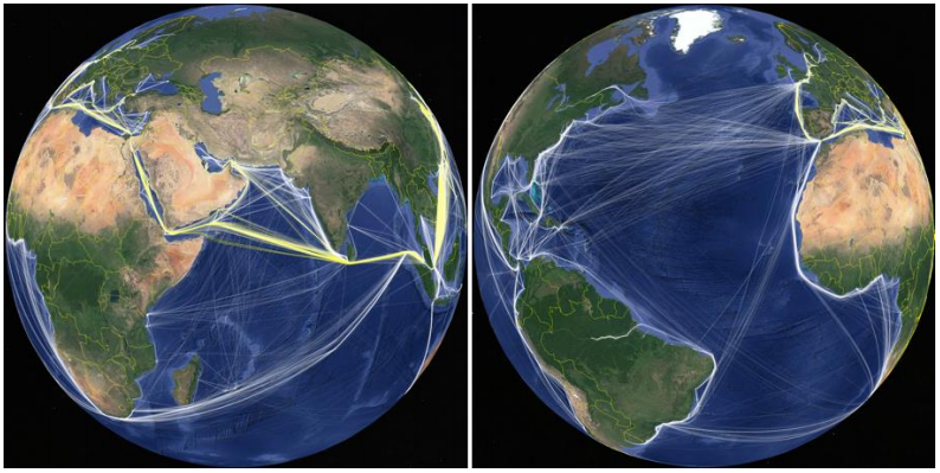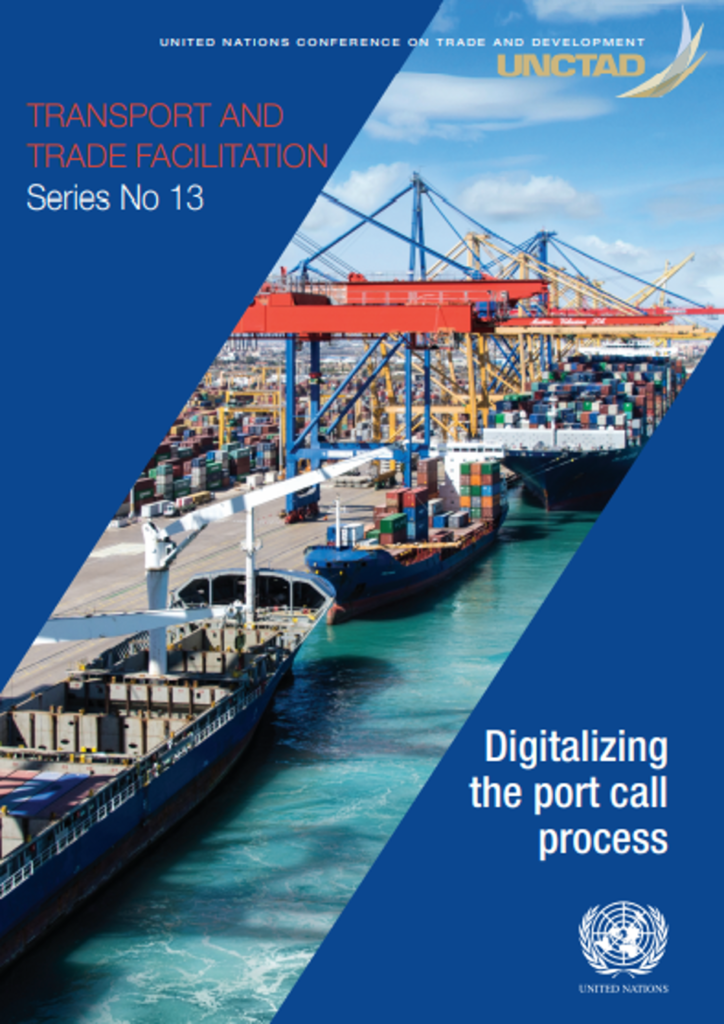The United Nations Conference on Trade & Development (UNCTAD) recently published a report regarding the ongoing digitalization process in the maritime sector.
This study titled “Digitalizing the port call process” has been compiled by Mikael Lind, Robert Ward, Michael Bergmann, Sandra Haraldson and Almir Zerem with the Research Institutes of Sweden (RISE). Since 2013, RISE has supported those engaged in and are associated with port call operations to develop and validate Port Collaborative Decision Making (PortCDM) concepts. In short, PortCDM facilitates collaboration through information sharing to improve the accuracy of predicting arrival, berthing and departure times of ships. Thus conserving resources, time and fuel.
As the study outlines, ships move approximately 90% of the world’s trade while ports are logistical hubs in the larger global transport system. As logistics environments, ports must manage different types of trade – each with different requirements. As nodes in this global system, complex port call operations involve a substantial number of actors.

In particular, the study outlines the benefits of collaborating with other actors in the port call chain through the adoption of port call digitization. By summarizing the current sub-optimal port operations, the study also warns against the dangers to ports if actors hesitate to adopt such international standards.
Acknowledging the global nature of transport, PortCDM enables common situation awareness through the transmission of data in a standardized, internationally recognized message format.
In summary, PortCDM concepts and standards seek to overcome the current inefficiencies in the port call process by providing a framework for data sharing, enhanced collaboration and common situational awareness. It is a solid foundation to enable all the actors involved to access shared information relevant to their activities based on input from multiple sources of up-to-date spatial-temporal data. All port call events that affect the port stakeholders as well as the different actors’ intentions are accurate, accessible and secure.
Through the adoption of Port CDM, port call actors follow operational and technical guidelines and thus mutually benefit from more predictable timings and operations in sea transport.
As the study indicates, “There are important initiatives underway to achieve the ‘connect once, collaborate infinitely’ infrastructure that the PortCDM and port call optimization concepts require for port stakeholders worldwide (also in the hinterland).”
Greater control through collaboration.
So far, PortCDM concepts and standards were successfully validated in nine European ports, including the Port of Limassol. As the largest port in Cyprus and one of the busiest ports in the Mediterranean transit trade, the Port of Limassol is an ideal testbed for PortCDM.
As a member of the project Sea Traffic Management in the EAstern Mediterranean (STEAM), Cyprus Subsea Consulting and Services Ltd (CSCS) contributes to advancing sea traffic management. Through the creation of innovative environmental monitoring & forecasting systems, CSCS aims to aid all actors in the port call chain to further optimize their operations.
The ultimate goal of PortCDM is to introduce electronic information exchanges to make cross-border trade simpler and the logistics chain more efficient. CSCS is excited to be on the cutting edge of sustainable ports!
The challenge is now on current stakeholders in the maritime sector to implement digitalization and to adopt common, interoperable data standards or to risk losing control in the logistic chain.
As one of the conclusions of the study:
Digitalization is increasingly playing a pivotal role in environmental, social and governance (ESG) topics by accelerating sustainable initiatives and helping to monitor and mitigate emerging risks and pressures, for example, in tackling environmental pollution and climate change.
Again, the full report is available here.

